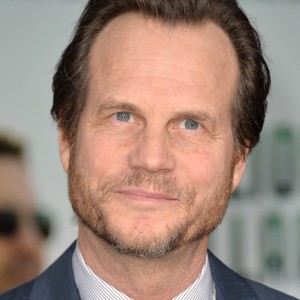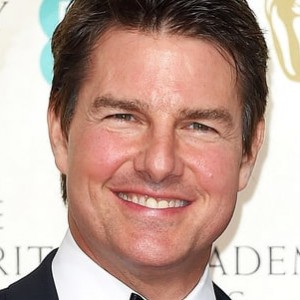It’s been 70 years since President Truman ordered his loyalty tests. Now Hollywood has a loyalty test of its own.
Seventy years ago this week — on March 21, 1947, to be exact — President Truman issued an executive order that caught some of his most die-hard supporters by surprise.
The order, writes Robert Justin Goldstein in Prologue magazine, “required that all federal civil service employees be screened for ‘loyalty.’ [It] specified that one criterion…would be a finding of ‘membership in, affiliation with or sympathetic association’ with any organization determined by the attorney general to be ‘totalitarian, Fascist, Communist or subversive’ or advocating or approving the forceful denial of constitutional rights to other persons or seeking ‘to alter the form of Government of the United States by unconstitutional means.’ ”
Two and a half years before Sen. Joseph McCarthy raised his ugly head and alleged massive Communist infiltration of the government, the “red scare” was underway. It would have a devastating impact on Hollywood.
Months after Truman’s order, several dozen members of the film industry were summoned to appear as witnesses before the House Un-American Activities Committee. Nineteen of them, known as the “Unfriendly Nineteen” — a term coined by the red-baiting Hollywood Reporter — were left-wingers, hostile to the committee. Billy Wilder mordantly quipped that “only two of them have talent. The rest are just unfriendly.” But their summons sent waves of fear coursing through the industry, enough to paralyze even liberal supporters such as Humphrey Bogart, and certainly more conservative ones such as Gary Cooper.
By the end of the hearings, 10 of the witnesses had been cited for contempt of court, and soon some of the top movie executives issued what became known as the Waldorf Statement, a two-page press release vowing that “We will forthwith discharge or suspend without compensation those in our employ, and we will not re-employ any of the ten until such time as he is acquitted or has purged himself of contempt and declares under oath that he is not a Communist.”
The Hollywood Ten would serve time in prison and emerge to find themselves banished from the studios, forced to scrimp and scrape and use “fronts” just to survive. More than a decade would pass before they were able to work freely again.
***
I’ve often wondered whether McCarthyism could ever find a foothold in Hollywood or America again. I didn’t think so, until now.
That possibility was always present in the minds of the blacklisted, some of whom I came to know when I arrived in Los Angeles in the 1980s, among them Martin Ritt, the director of such pictures as Hud, The Spy Who Came in From the Cold and Norma Rae.
Marty was blacklisted for several years and later made a movie about the experience, 1976’s comedy-drama The Front, starring Woody Allen and Zero Mostel. He was a man of enormous integrity, who was blackballed without explanation, though he insisted he had never been a member of the Communist Party. Overnight, his work dried up and he was forced to return to his roots in the theater — along with the racetrack, where he made his real money. He could have named names to get himself off the hook, but he didn’t, in contrast to his close friend Elia Kazan, whose betrayal stung him to the quick.
Ritt was relatively lucky; he was allowed back into the Hollywood fold sooner than most, when he got to direct the low-budget feature Edge of the City (1957), the first of the 20-plus films he would make over the following three decades. Others were less fortunate. Paul Jarrico, a writer whom I also was privileged to meet, and who’d been Oscar-nominated in his mid-20s for Tom, Dick and Harry (1941), fled to Paris, his career never to bounce back to the heights it had reached before.
More than careers were hurt: friendships were sundered, relationships broken, families destroyed, lives ruined. Even those who weren’t victims of the blacklist lived in constant fear that they might become victims, too.
Because fear is the most contagious of diseases. It spreads with a will of its own, infecting innocent and guilty alike, poisoning the oppressor as well as the oppressed. Those who instill fear are often afraid. And the more they inflict fear on others, the more likely they are to feel it themselves.
***
I’m seeing a lot of fear now.
I don’t mean among my Hollywood colleagues, most of whom feel immune to the dangers facing some of the less privileged members of society. But it’s there among my Muslim friends, one of whom was prescient enough to anglicize his name after 9/11, and it’s even more present among some of the undocumented students in The Hollywood Reporter’s Mentorship Program.
I can tell you from personal experience, there are few things as wrenching as talking to a 19-year-old who’s lived here most of her life and considers herself American to the core, and who needs to discuss her options should DACA be eliminated. (DACA, or Deferred Action for Childhood Arrivals, is a program introduced by Obama for those who came to the U.S. as undocumented children; it allows them to work and study on a temporary basis.) There’s a 50-50 chance DACA will be thrown out by the new administration, and with it three-quarters-of-a-million or more young people who believe in America, but are no longer sure America believes in them.
Persecuting Muslims and refusing to show compassion for immigrant children are not the same thing as blackballing people for their political beliefs. But they’re rooted in the same cause: a distrust of the other, a desire to contain and even destroy the things one doesn’t understand.
They are part of the same climate of fear that led to McCarthyism. Back then it was fear of Communism; now it’s fear of an amorphous enemy that’s all the more potent to some for being unseen. Call it the fear of fear itself.
And here’s the surprising thing: that fear isn’t just felt by the usual groups liberals want to protect; it’s also felt by conservatives.
In an astonishing reversal of Hollywood history, just as liberals here once considered themselves an endangered species, so do conservatives today. They no longer are free to talk in the open, because they feel — rightly — we’re no longer prepared to listen, any more than they're prepared to listen to liberals. There's deafness on both sides.
Tim Allen made headlines this week when he groused: “You gotta be real careful around here. You get beat up if you don’t believe what everybody else believes. This is like ’30s Germany.” It's nothing like Nazi Germany, and he undermines his point by so exaggerating it — but there's some truth to what he says.
Think I’m wrong? Imagine what Mel Gibson or Vince Vaughn must have felt at the Golden Globes. I couldn’t help wondering how the crowd would have reacted if they had spoken out instead of Meryl Streep. While she was given an ovation, they’d have been booed off the stage.
And that worries me. Because nobody should be afraid to speak. Freedom of speech means freedom for all, for our opponents as well as ourselves.
True, there’s no rule of law that says speech isn’t allowed. But censorship and self-censorship are two sides of the same coin, and once we accept one, the other is sure to follow.
For more Galloway on Film, please check out the archive.









No comments:
Post a Comment
Thanks for commenting. Your comments are needed for helping to improve the discussion.